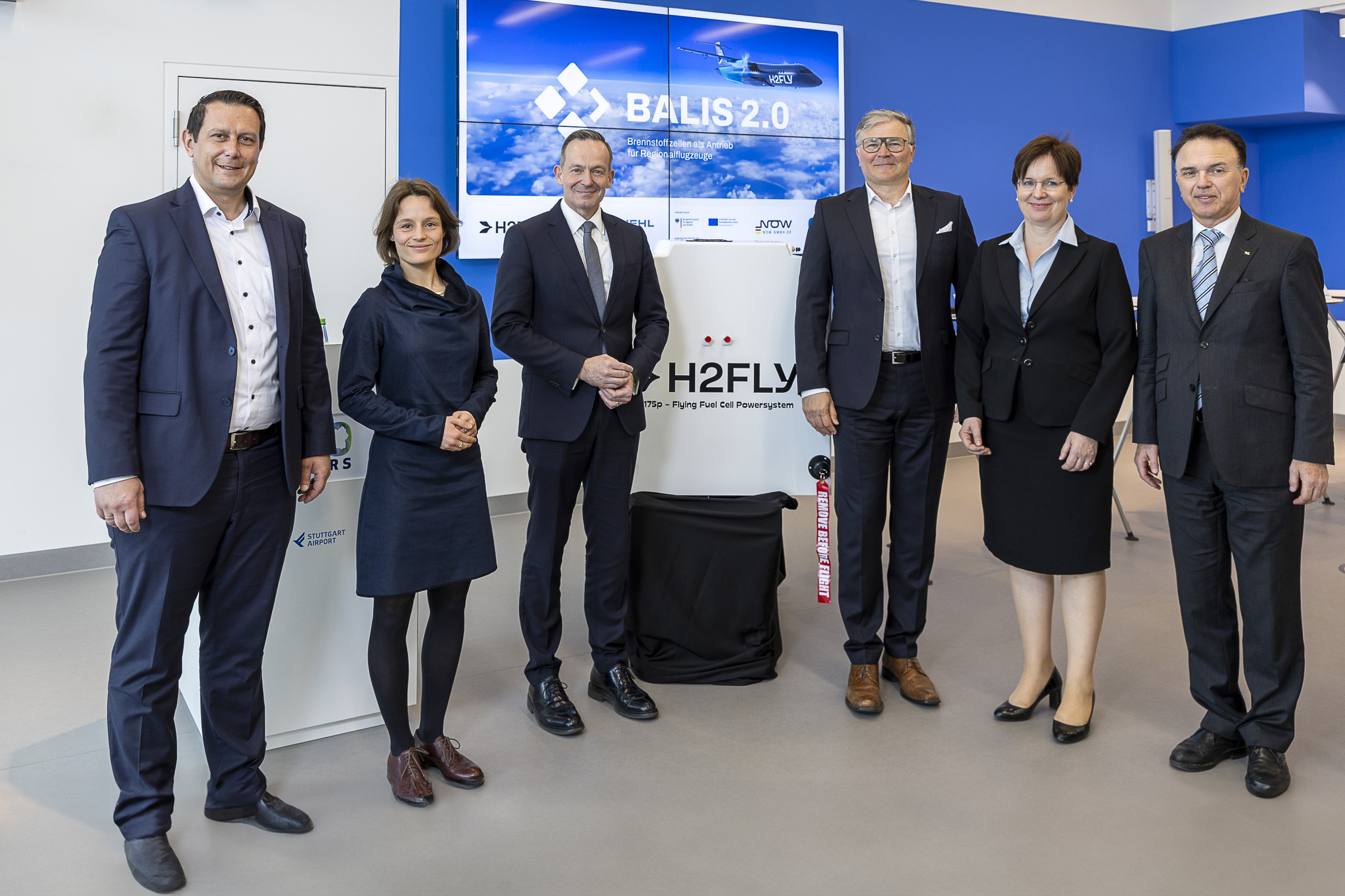
The German Federal Ministry for Digital and Transport (BMDV) yesterday announced the launch of the BALIS 2.0 Project, led by H2FLY and supported by the German Aerospace Center (DLR) and Diehl Aerospace, which aims to develop and test a high-performance fuel cell system with an output of 350 kW designed for commercial aircraft applications. The 350 kW fuel cell system serves as a basic module to develop hydrogen-electric powertrain systems in the MW-class range, which could power regional aircraft with 40 – 80 seats in the future, emission-free.
Dr Volker Wissing, Federal Minister for Digital and Transport, awarded the funding document for the further development of fuel cell systems for regional aircraft to the consortium during the project kick-off at Stuttgart Airport.
According to a press release:
“H2FLY is responsible for the development and setup of the fuel cell system. In the BALIS test field, the German Aerospace Center (DLR) studies the coupling behaviour of fuel cell systems in the megawatt-class range with an electric drive and performs studies to optimise the overall system operation. Diehl Aerospace will continue to develop its high-performance and highly reliable platform technology to enable efficient coupling and scaling of fuel cell systems.
“From 2024 to 2026, the BALIS 2.0 project will receive EUR 9.3 million in funding from the BMDV. Funding for this initiative is also provided as part of the German Recovery and Resilience Plan (DARP) via the European Recovery and Resilience Facilities (ARF) in the NextGenerationEU program. The funding guideline is coordinated by NOW GmbH and implemented by Project Management Jülich (PtJ). From the initial project proposal to the completion, PtJ supports all project partners ensuring that the program objectives are successfully achieved.
Dr Volker Wissing, Federal Minister for Digital and Transport, said the programme will create the technical foundation for marketable solutions for tomorrow’s CO2-neutral flying.
Korinna Jörling, Head of the Hydrogen, Alternative Fuels and Fuel Cells Division, NOW GmbH said: “BALIS 2.0 represents a significant milestone for a sustainable future in aviation. Developing and implementing hydrogen technology in aviation isn’t just a major step forward, it’s also a critical response to the urgent challenges of climate change. Investment and innovation in this area underscore the vital role of public funding for pioneering technologies and their transformative impact on the aviation industry.”
Prof Dr Josef Kallo, co-founder and CEO of H2FLY said: “Federal funding for BALIS 2.0 demonstrates the growing significance of hydrogen fuel cell systems as a viable solution for clean aviation. The project insights will propel the development of megawatt-class powertrains, significantly accelerating the transition to sustainable, zero-emission flight.“
For more information


